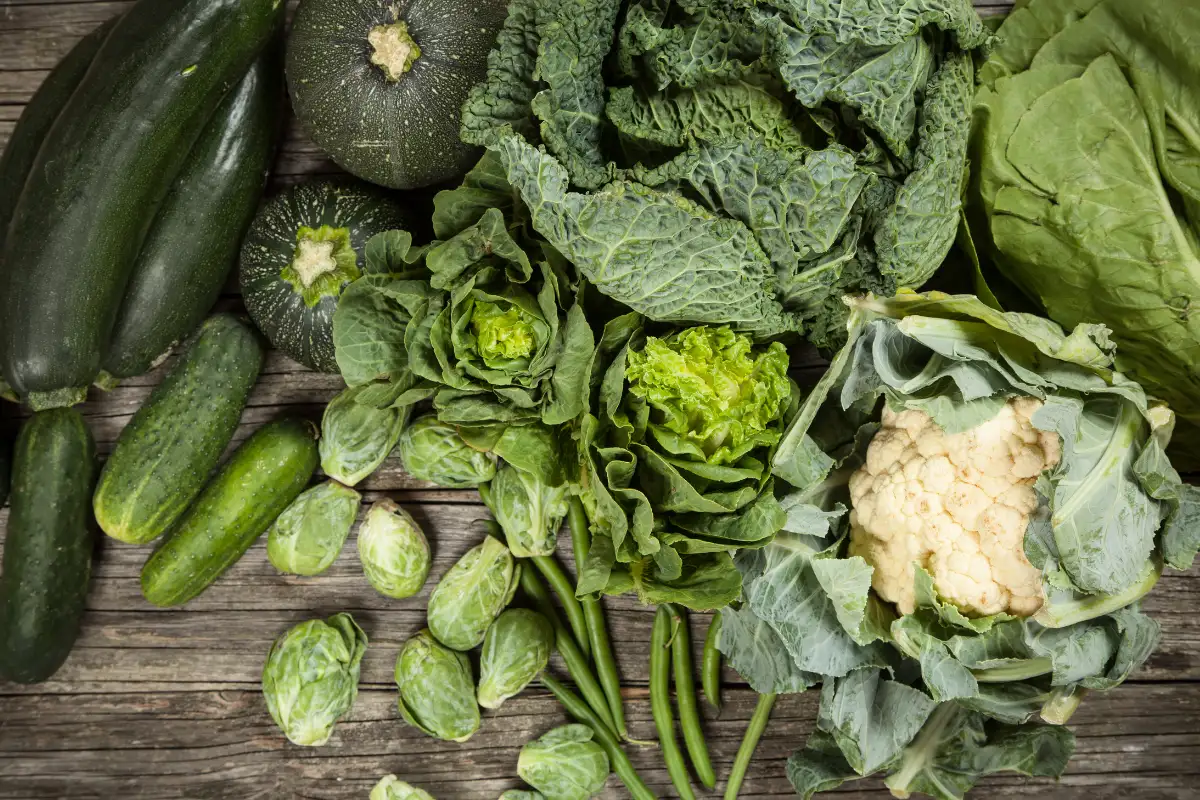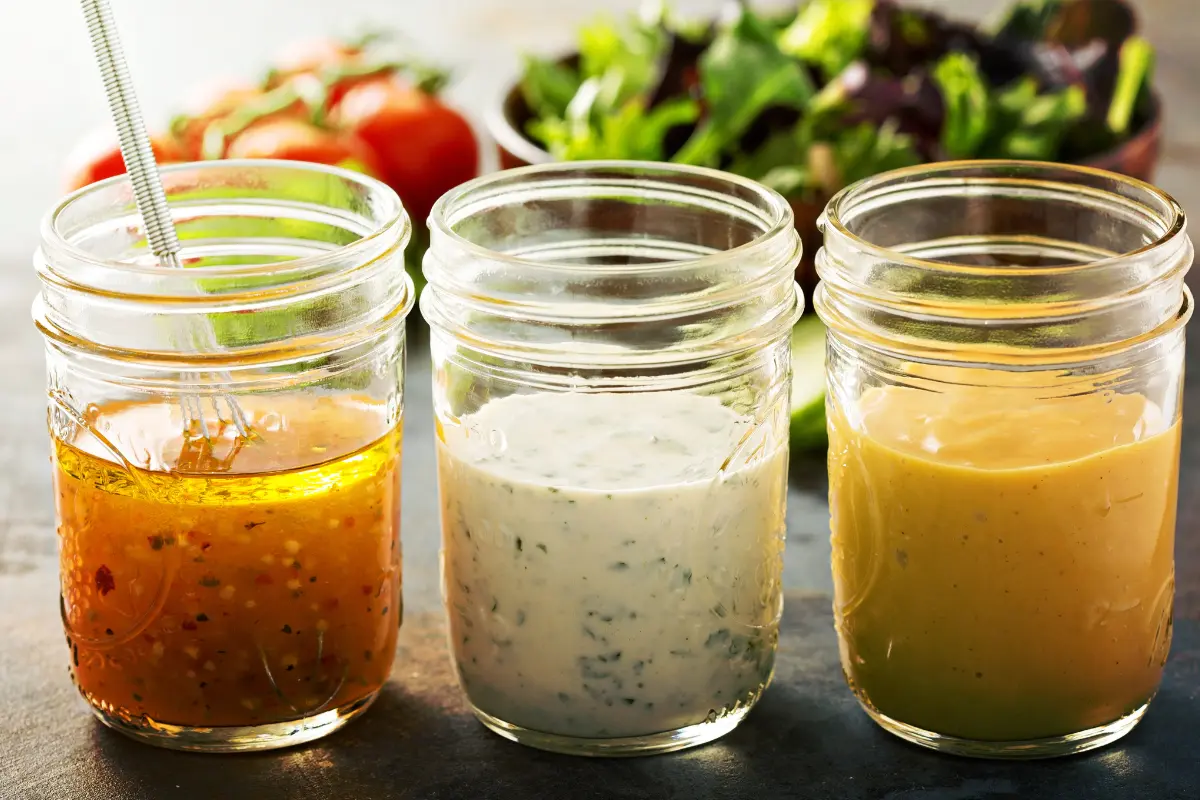
We've all been there: waking up with stiff joints, bloated bellies, or a general feeling of "ugh."
Chronic inflammation can be a silent saboteur, wreaking havoc on your body and making you feel less than your best. Luckily, your kitchen might hold the key to soothing those fiery internal flare-ups.
Today, we're sharing foods that help with inflammation and giving you some suggestions to try.

Where Does Inflammation Come From?
Inflammation is your body’s natural response to protect itself from harm. Think of it as your internal alarm system. When something’s wrong—whether it’s an infection, an injury, or a sneaky invader like a virus—your body sends out a distress signal, summoning immune cells to come and save the day.
Advertisement
This acute inflammation is adaptive; it’s how your body heals. However, when inflammation sticks around longer than its welcome, it becomes chronic. Serious health issues result, including arthritis, heart disease, and even some cancers. This is where the power of ‘the kitchen’ comes into play to help calm that response and improve your quality of life.
The Power of Fruits and Vegetables
So, how can you turn down the heat and send chronic inflammation packing?
Let’s start with the colorful stuff. Fruits and vegetables are like the superheroes of the food world. They’re packed with antioxidants, vitamins, and minerals that can help reduce inflammation.
Think of berries, for instance. These little powerhouses are loaded with anthocyanins, which are compounds that have been shown to reduce inflammation. Toss them into your morning smoothie, sprinkle them over your yogurt, add them to your oatmeal, or munch on them as a snack.
Advertisement
Add More Leafy Greens
Kale, spinach, and Swiss chard are rich in vitamins A, C, and K, which are known for their anti-inflammatory properties. These greens are also packed with fiber, which helps to keep your gut healthy. A happy gut equals a less inflamed you. Try adding a handful of spinach to your next smoothie, whipping up a big, leafy salad for lunch, or baking some kale chips for your next snack.
Embrace Healthy Fats
Now, let's talk about fats—the good kind. Omega-3 fatty acids, found in foods like salmon, chia seeds, and walnuts, are like kryptonite to inflammation. They help to reduce the production of inflammatory substances in the body.
Regularly incorporating fatty fish like salmon or mackerel (yes, canned fish counts!) into your diet can significantly help lower inflammation levels. Check out this 5-minute salmon salad recipe! For plant-based folks, chia seeds or flaxseeds are a great addition to your morning oatmeal or your favorite smoothie.
Advertisement
Try Some Turmeric
Turmeric deserves a special shoutout. This vibrant yellow spice contains curcumin, a powerful anti-inflammatory compound. Studies have shown that curcumin can inhibit the molecules that play a role in inflammation. Try adding a pinch of turmeric to your soups, stews, or even your scrambled eggs. For an extra anti-inflammatory boost, pair it with black pepper, which can enhance the absorption of curcumin by up to 2000%.
Nuts and Seeds: Small but Mighty
Almonds, walnuts, and sunflower seeds are rich in healthy fats, protein, and fiber. They’re also great sources of vitamin E, which is an antioxidant that can help reduce inflammation. Snack on a handful of nuts or sprinkle them over your salads for a satisfying crunch.
Advertisement
Whole Grains for Whole Health
Whole grains should be your new best friend. Unlike refined grains, which can actually promote inflammation, whole grains like brown rice, quinoa, and oats are high in fiber and have been shown to reduce inflammation. Swap out white rice for brown rice, or start your day with a hearty bowl of oatmeal topped with berries and a drizzle of honey.
Hydration and Herbal Teas
Let’s not forget about hydration. Drinking plenty of water is crucial for flushing out toxins that can cause inflammation. Herbal teas like green tea are also excellent choices. Green tea is packed with antioxidants, particularly EGCG, which has been shown to have anti-inflammatory effects. Sip on a soothing cup of green tea in the afternoon instead of reaching for that second cup of coffee.
Cut Back on Sugars and Processed Foods
While focusing on what to add to your diet, it’s also important to consider what to reduce or eliminate. Refined sugars and processed foods can be major inflammation culprits. These foods can trigger the release of inflammatory markers in the body. So, cutting back on sugary snacks, sodas, and processed foods can make a big difference. Instead, opt for natural sweeteners like honey or maple syrup and choose whole, unprocessed foods whenever possible.
Advertisement
Mindful Cooking Methods
It’s not just about what you eat, but also how you cook it. Cooking methods like grilling, frying, and roasting at high temperatures can create harmful compounds that promote inflammation. Try steaming, boiling, or sautéing your foods instead. Incorporate garlic and onions into your meals, whether raw or cooked. Not only do they add flavor, but both are rich in anti-inflammatory compounds and have been used for centuries in traditional medicine.
Go Fermented for a Happy Gut
Add fermented foods to your diet whenever possible. Foods like yogurt, kefir, sauerkraut, and kimchi are rich in probiotics. These beneficial bacteria help balance gut microbiomes, which are crucial in managing inflammation. Try adding a side of sauerkraut to your meals, or enjoy a daily serving of probiotic-rich yogurt.
If you have a bit of a sweet tooth, try these delicious yogurt bites for dessert!
Advertisement
The Role of Fiber in Inflammation
Fiber, found abundantly in fruits, vegetables, whole grains, and legumes, maintains a healthy digestive system. High-fiber foods help regulate the gut's balance by promoting the growth of beneficial bacteria and reducing inflammation. Additionally, fiber helps control blood sugar levels, which can influence inflammation. Add beans, lentils, and other legumes to your diet to boost your fiber intake and support overall health.
The Magic of Herbs and Spices
Beyond turmeric, other herbs and spices like ginger, cinnamon, and rosemary also possess anti-inflammatory properties. Ginger, for example, contains compounds called gingerols, which have been shown to reduce inflammation and alleviate pain. Cinnamon is rich in antioxidants and can help reduce inflammation markers in the body. Rosemary contains carnosic acid and rosmarinic acid, both of which have anti-inflammatory effects. Experiment with these spices in your cooking to add both flavor and health benefits to your meals.
Advertisement
Listen to Your Body
Everyone's body reacts differently to foods, so pay attention to how you feel after eating certain foods. Keep a food diary to help you identify which foods might trigger inflammation in your body. Note any symptoms you experience. Consider eliminating potential culprits one at a time to see if your symptoms improve. Personalized nutrition can be a powerful tool in managing inflammation. If you want more guidance in this area, try one-on-one coaching.
Wrapping Up: A Cooler, Calmer You
Mindful choices will help you combat inflammation. Fill your plate with a rainbow of fruits and vegetables, opt for whole grains, choose healthy fats, and be considerate of how you prepare your food. Add extra flavor with herbs and spices that support your fight against inflammation. Stay hydrated and listen to your body's signals.
A few simple, powerful changes can help reduce inflammation and improve your overall health. So, head to the kitchen next time you feel inflamed, and let the healing begin. Cheers to a cooler, calmer, and more vibrant you!
Schedule a Free Intro Call
Working Against Gravity has led the macro tracking and health space for over a decade. Our team doesn’t just understand the science of nutrition—we’ve spent years mastering the art of tailoring it to fit your life. That means no cookie-cutter plans, just real strategies that have worked for over 30,000 people.
Schedule a free call with our team to learn how working with a 1-on-1 WAG coach will help you reach your goals.



